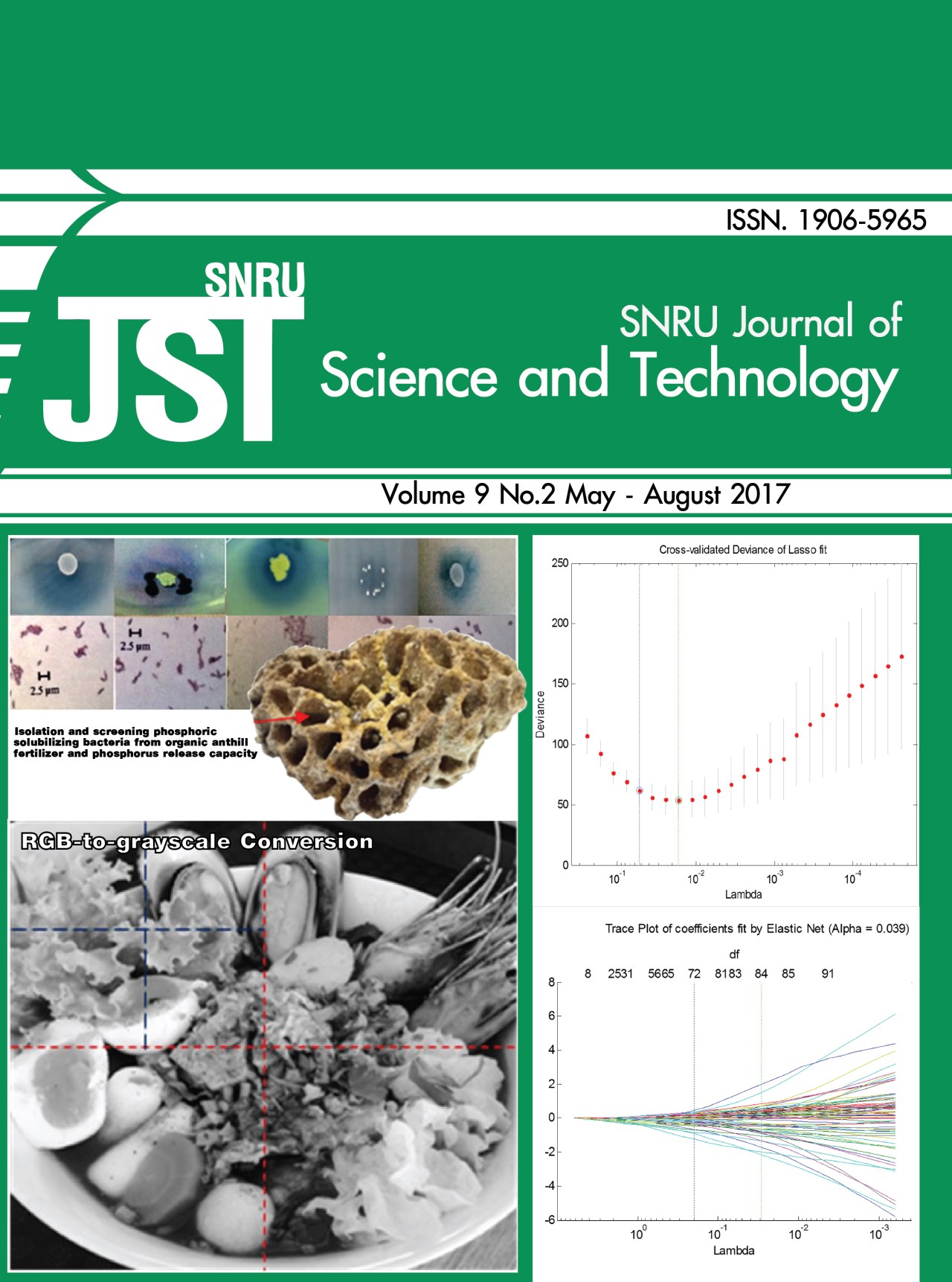Malware detection for Thai Android applications using regularized logistic regression
Keywords:
Android applications, Malware detection, LASSO, Elastic net, Regularization, Logistic regressionAbstract
Android applications have widely served for this generation of smartphone customers. As a consequence,malwares have also increased and caused severe security risks. Therefore, an efficient malware detection system,
especially for Android applications, has become more interesting and necessary to deal with the next generation
malwares. Machine learning approach has proven its capability to identify whether an application is benign or
malicious, by interpreting it as a dichotomous malware-detected classification. A permission required by each of
Android application can be considered as a promising feature, despite having to take a large number of them into
account. Both regularization and feature selection improve generalization performance of a classifier. In this study,
Least Absolute Shrinkage and Selection Operator (LASSO) and elastic net are carried out and their performances
are compared on data set of Thai Android applications and malwares. The regularized logistic regression with
simultaneous feature selections provide more efficient malware detection system. The experimental results
indicate that both LASSO and elastic net have their own benefits for malware classification. The LASSO with an
efficient feature selection requires only 18 permissions of feature to develop the malware classification with
minimum deviance and 10 permissions for a parsimonious model. The elastic net is able to detect the malware
with 95% accuracy, more feature requirement notwithstanding.
Downloads
Published
2017-07-17
How to Cite
Promjiraprawat, K. (2017). Malware detection for Thai Android applications using regularized logistic regression. Creative Science, 9(2), 521–528. Retrieved from https://ph01.tci-thaijo.org/index.php/snru_journal/article/view/93314
Issue
Section
Research Article








